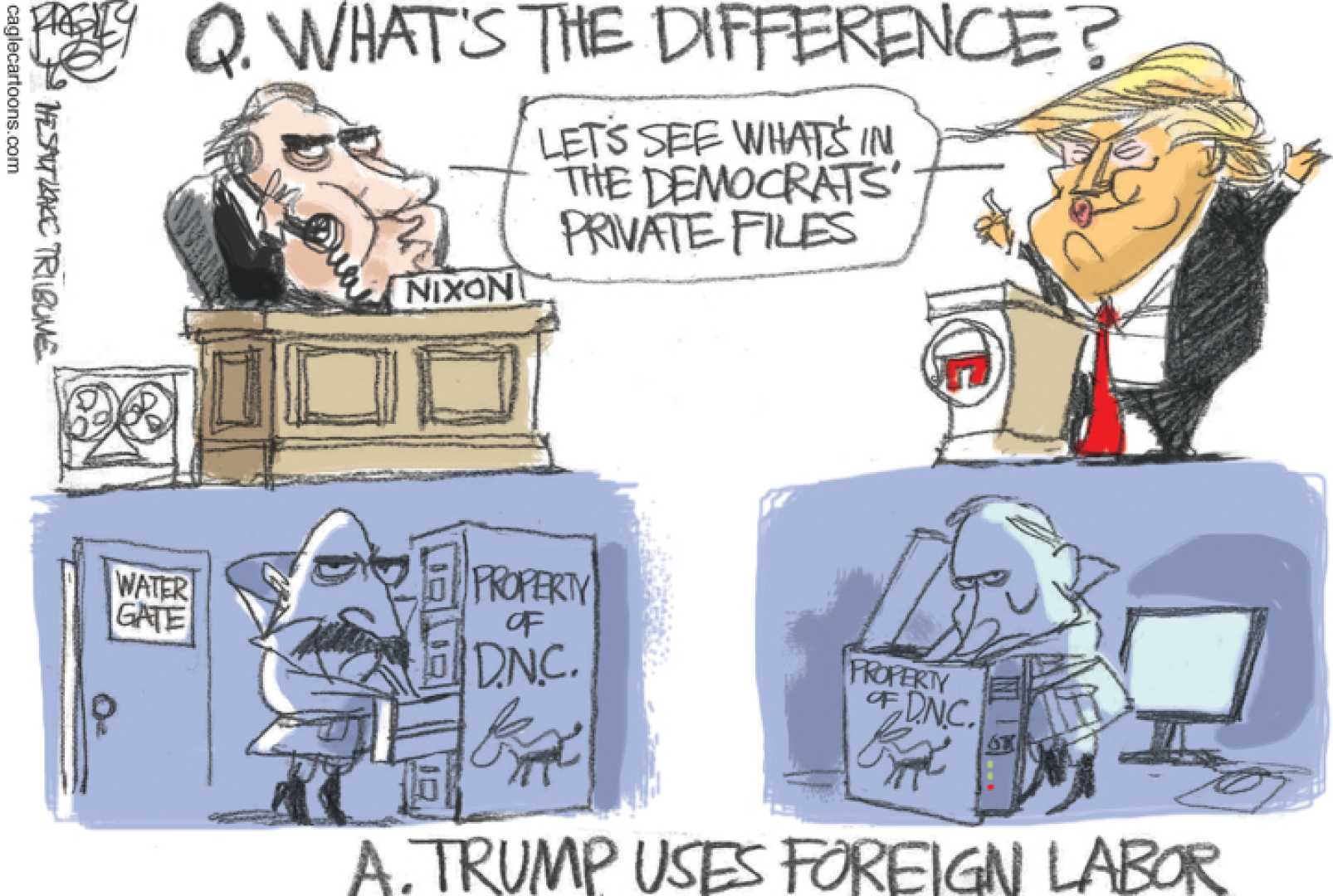Politics
Trump Mirrors Nixon’s Tactics with New Bureaucratic Assault

Washington, D.C. — In a striking parallel to the tactics of former President Richard Nixon, President Donald Trump is employing similar strategies to settle personal and political scores, utilizing executive power in ways that challenge established norms and laws. This approach is embodied in the newly created Department of Government Efficiency (DOGE), which lacks the traditional checks in place to prevent such abuses.
Trump’s rise to power, much like Nixon’s, is characterized by an obsession with perceived enemies and a willingness to employ the federal bureaucracy for retaliatory purposes. After the event of January 6, 2021, which some view as a wake-up call for accountability, Trump’s actions have increasingly mirrored those of his predecessor, Nixon.
Richard Nixon, who famously said, “When the president does it, that means that it is not illegal,” transformed the White House into a personal fiefdom that targeted journalists and antagonists. He orchestrated a campaign against his detractors through the Committee for the Re-Election of the President, known as CREEP, which led to unlawful actions, including the Watergate scandal that resulted in his resignation.
Trump appears to have adopted a similar playbook, demonstrating what critics see as a fixation on personal grievances and retaliation. “He who saves his Country does not violate any Law,” he asserted in 2025, hinting at the notion that his controversial decisions are for the nation’s good rather than self-serving.
Much of Trump’s strategy revolves around DOGE, designed to eliminate waste in government spending. However, unlike its name suggests, DOGE has taken on a more subversive role. Rather than focusing solely on budgetary oversight, its operatives have allegedly been gathering information on various federal agencies, reminiscent of the clandestine operations of CREEP.
Analysts note that, much like Nixon’s operatives who broke into the Democratic National Committee headquarters, DOGE personnel have accessed sensitive information from agencies including the IRS and Treasury. The scale of these efforts dwarfs Nixon’s, indicating a broader ambition to exert influence over a far larger bureaucratic infrastructure.
In a recent move that highlights the political nature of DOGE’s operations, Trump appointed Elon Musk, CEO of SpaceX and Tesla, as the head of the agency. This appointment raised eyebrows given Musk’s personal interests and his public association with Trump.
“The move of having Musk at the helm raises questions about the integrity and intentions of DOGE,” said Paul Matzko, a historian of conservatism. “It’s not just about efficiency; it carries the weight of personal vendettas.”
Furthermore, Trump’s actions in response to perceived slights have been blatant. Following Joe Biden’s removal of Trump-era appointees from the Kennedy Center board, Trump reinstated himself as the chairman in a rebuttal of perceived professional affront. His dismissal of the head of the National Archives, an entity traditionally viewed as non-partisan, serves as a stark reminder of the lengths he is willing to go to settle scores.
In addition, Trump’s administration has challenged the safeguards put in place after Nixon’s presidency, including the Impoundment Control Act of 1974 and the Inspector General Act of 1978. These laws are designed to prevent unilateral action by the president regarding federal funds. Trump’s attempts to freeze funding for various programs could lead to a constitutional crisis, similar to those experienced during Nixon’s administration.
Trump’s approach has drawn strong responses from those who recall Nixon’s abuses of power. “History has shown us that unchecked executive authority creates a dangerous precedent,” warned political analyst Emily Lee. “If we don’t learn from Nixon, we risk repeating those mistakes.”
As scrutiny grows around Trump’s utilization of DOGE and his apparent disregard for established governance protocols, the question remains whether current Republican leaders will hold him accountable unlike their predecessors during Watergate. Unlike the GOP’s forthright approach during Nixon’s scandal, which saw key figures take a stand against egregious behavior, today’s party appears more inclined to support Trump’s maneuvering.
The stark contrast between the Republican responses to Nixon’s and Trump’s actions raises significant concerns about the preservation of democratic norms and the rule of law. In the era of Trump, surveillance and punitive actions against political adversaries have become unsettling hallmarks of his administration.












